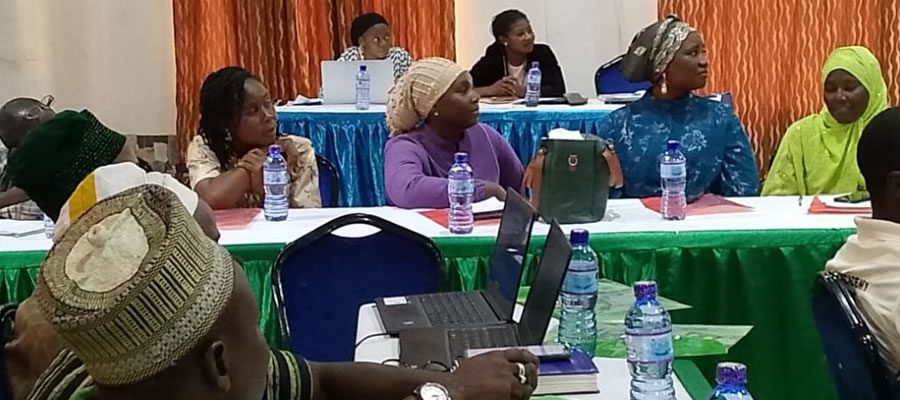

GENERAL
Stakeholders meet to strategise on improving learning outcomes at Nanton

Date Created : 10/18/2024 12:00:00 AM : Story Author : Solomon Gumah/Ghanadistricts.com
The meeting, which formed part of the District Education Oversight Committee’s activities and attended by key stakeholders in education in the area, was also to propose workable measures towards improving learning outcomes in the district.
The stakeholders included traditional and religious leaders, community members, and representatives of civil society organisations, Ghana National Association of Teachers, members of School Management Committees, and members of Parent- Teacher Associations.
It was organised by the Nanton District Directorate of Education in partnership with School for Life, an NGO, and funded by USAID Ghana Strengthening Accountability in Ghana’s Education System (SAGES) project under its System Strengthening Activity.
Madam Janet Adua, Nanton District Director of Education, speaking during the meeting at Nanton, said it was to review the findings by the various School Improvement Support Unit Officers.
She added that it was part of measures to develop the Annual District Education Operation Plan (ADEOP).
She said, “We are here to deliberate on the activities being carried out by our field officers, evaluate the challenges and see what we can collectively do to improve teaching and learning outcomes in the schools.”
She said whilst the Compulsory Basic Education Policy coupled with the Free Senior High School initiative had brought significant improvement in access to education, learning outcomes were a challenge.
Mr. Mahama Abdulai, School and Community Engagement Coordinator for School for Life, said the USAID SAGES Project sought to improve primary education delivery through instituting the accountability approach in schools.
He said the overall objective in adopting the accountability approach was to ensure that learners at the basic level had a solid foundation to pursue higher education.
Mr. Mahama Abdul-Wahab Baba, Head of Supervisory Unit of the Nanton District Directorate of Education, who made a presentation on some of the key findings, mentioned low enrollment, inadequate Information and Communication Technology facilities, inadequate furniture and poor maintenance of Water, Sanitation and Hygiene facilities as the challenges impeding effective teaching and learning in the district.
He said some of the findings also pointed to issues of teenage pregnancy contributing to school dropout amongst girls in the area.
He said “Despite the implementation of the Re-Entry Policy, some parents still force their girls into marriage as soon as they notice that their girls are pregnant.”
He expressed the need for more sensitisation on some of the government’s interventions in education to help attain positive learning outcomes.
Madam Zubaida Mustapha, Nanton District Gender Desk Officer, expressed the need for building the capacities of teachers in the area to improve their performance.
She raised concerns over abuse of instructional hours and said most teachers did not stay in the communities where they were posted.
Mr. Abdulai Mutada, Nanton District Chief Executive, who chaired the event, commended USAID SAGES Project and School for Life for complementing the efforts of the government in promoting quality education in the area.

 facebook
facebook
 X
X
 Youtube
Youtube
 instagram
instagram
 +233 593 831 280
+233 593 831 280 0800 430 430
0800 430 430 GPS: GE-231-4383
GPS: GE-231-4383 info@ghanadistricts.com
info@ghanadistricts.com Box GP1044, Accra, Ghana
Box GP1044, Accra, Ghana